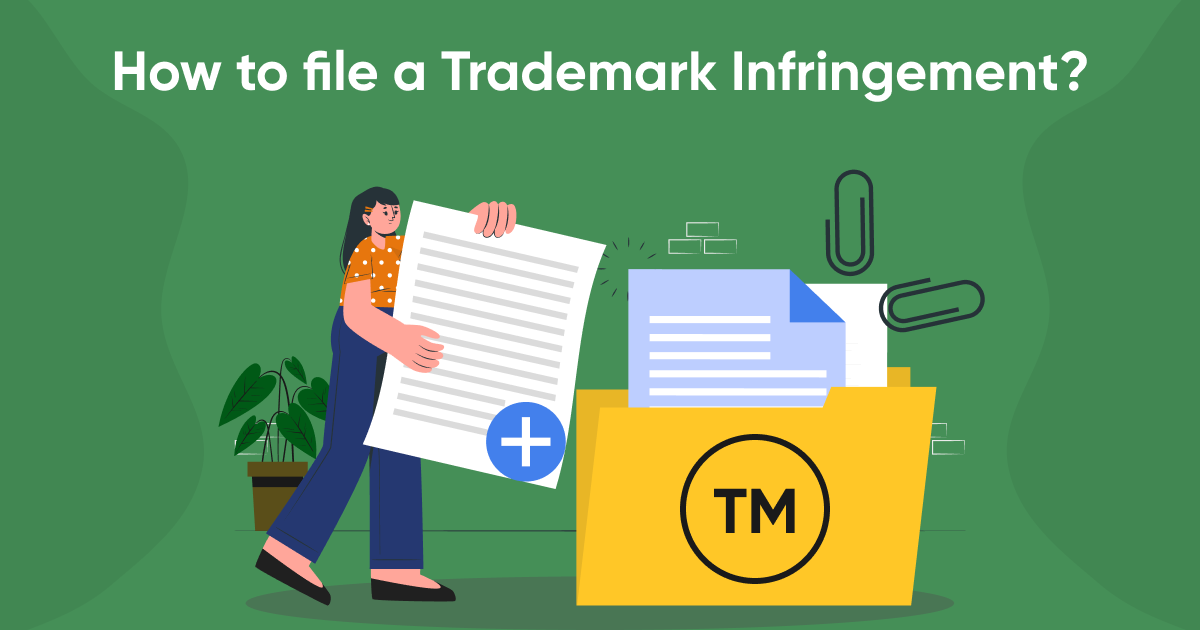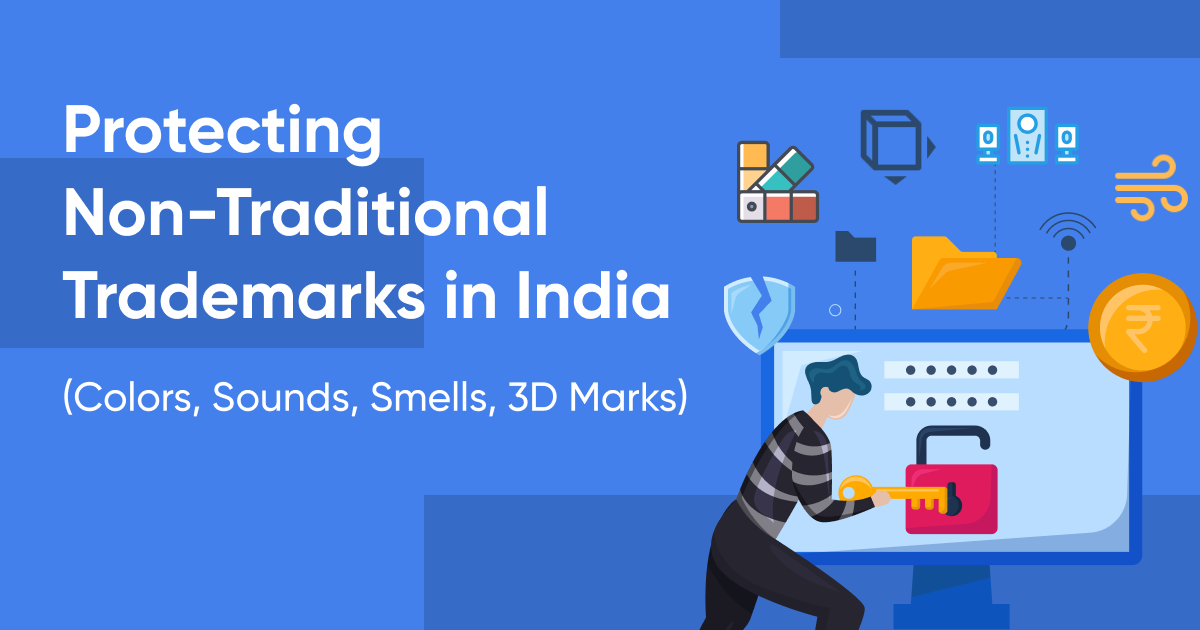How to File a Trademark Infringement in India: A Complete Guide
In today’s brand-driven economy, a trademark is more than just a name or logo — it’s a business identity. When someone uses a mark that is identical or deceptively similar to yours, it’s not just unethical — it’s trademark infringement, and in India, it’s a violation of the law.
If your brand is being misused or counterfeited, understanding how to file a trademark infringement complaint is essential. In this detailed guide, we break down everything you need to know to protect your rights and take action.
What Is Trademark Infringement?
Trademark infringement occurs when a registered trademark is used without permission by another party in a way that causes confusion or deception among consumers. In India, this is governed by the Trade Marks Act, 1999.
For example, if someone starts selling shoes under the name “Addibas,” closely mimicking Adidas, it could confuse customers and dilute the original brand’s identity. Such instances qualify as infringement.
Legal Framework for Trademark Infringement in India
The Trade Marks Act, 1999, clearly outlines the rights of a trademark owner and the legal remedies available in case of infringement.
Key sections of the Act to be aware of include:
- Section 28: Rights conferred by registration.
- Section 29: Infringement of a registered trademark.
- Section 134: Jurisdiction for filing a suit.
- Section 135: Reliefs in suit for infringement.
Types of Trademark Infringement
Direct infringement happens when someone uses a mark that is identical or deceptively similar to a registered trademark, without consent, in a way that creates confusion.
Indirect infringement, while not directly mentioned in the Act, refers to aiding or facilitating infringement. For example, a distributor knowingly selling counterfeit goods could be held liable.
Prerequisites Before Filing a Trademark Infringement
Before jumping into legal proceedings, there are a few important steps to take.
First, ensure that your trademark is registered. Only a registered trademark holder can file a suit under the Trade Marks Act. If the mark isn’t registered, you can still take action under common law through a “passing off” suit.
Second, gather evidence showing the use of your mark. This can include packaging, advertising materials, social media content, and sales records.
Finally, compile proof of infringement. Screenshots, product samples, and copies of the infringing party’s promotional material can serve as strong evidence.
Step-by-Step Process to File a Trademark Infringement Suit in India
1. Send a Cease and Desist Notice
Before heading to court, it’s standard practice to send a legal notice asking the infringer to stop using the mark. This formal communication serves as both a warning and an opportunity for an amicable resolution. It outlines your rights, provides proof of infringement, and gives the other party a specific time frame to comply.
2. Gather Documentation
Once the cease and desist notice has been sent (and especially if it’s ignored), start preparing documentation for legal action. This includes:
- A copy of your trademark registration certificate
- Proof of your brand’s presence in the market
- Examples of the infringing mark’s use
- Any evidence of consumer confusion or harm to your reputation
3. Determine the Jurisdiction
Section 134 of the Trade Marks Act allows the trademark owner to file a suit in the court where they reside or conduct business. This offers convenience and protection for the trademark owner.
4. File a Civil Suit
Trademark infringement is a civil matter, so the next step is to file a suit in the District Court or High Court. The complaint (plaint) should contain:
- Your legal standing and rights
- Description of the infringement
- Documentation of damages
- Specific reliefs requested (such as injunctions or compensation)
5. Seek Interim Relief
In serious cases, the court may grant a temporary injunction immediately to prevent further misuse of the mark. This can include:
- Restraining the infringer from using the mark
- Seizing counterfeit goods
- Freezing operations involving the mark
This is crucial when time is of the essence, particularly during product launches or peak business seasons.
6. Court Proceedings and Final Judgment
After filing the suit and serving notices, the court will hear both parties. The judgment will be based on several factors:
- Degree of similarity between the marks
- Nature of goods/services
- Channels of trade
- Target consumers
- Presence of confusion in the market
If the court rules in your favor, you could receive a permanent injunction, damages, destruction of infringing goods, and recovery of legal costs.
What If Your Trademark Is Not Registered?
Even if your mark is not registered, you’re not without options. Under Indian common law, you can file a passing off suit if someone misrepresents their goods as yours.
However, proving a passing off claim is harder. You must show that:
- You have built goodwill or reputation under the mark
- There has been misrepresentation by the infringer
- Your business suffered damage or is likely to suffer
This is why it’s always advisable to register your trademark at the earliest opportunity.
Remedies Available in Trademark Infringement Cases
When the court finds that infringement has occurred, it may grant several remedies.
Injunctions prevent the infringer from continuing to use the mark.
Damages or account of profits compensate for financial loss or the unlawful gains made by the infringer.
Delivery-up and destruction of counterfeit goods ensures that infringing products are removed from the market.
Legal cost recovery may also be ordered in favor of the rightful trademark owner.
Famous Indian Trademark Infringement Cases
One notable example is Coca-Cola vs. Bisleri, where Bisleri attempted to register the "Maaza" trademark internationally despite having sold the rights in India to Coca-Cola. The Delhi High Court ruled in favor of Coca-Cola, reinforcing that Indian trademarks can be protected globally.
In Yahoo Inc. vs. Akash Arora, the defendant launched a website named "Yahoo India," causing confusion. The court granted an injunction, emphasizing that domain names are protected just like traditional trademarks.
Importance of Trademark Monitoring
The best way to tackle infringement is to prevent it before it becomes serious. This requires ongoing vigilance.
You can monitor your mark manually using online tools or employ professional services that alert you to similar trademark filings or market activity.
Trademarkia offers a simple trademark monitoring service that can alert you to potentially conflicting marks filed in India or globally, helping you act early before brand confusion sets in.
Do You Need a Lawyer to File for Trademark Infringement?
While you can attempt to handle some aspects of the infringement process yourself, such as sending a cease-and-desist letter, filing a suit requires legal expertise.
A trademark lawyer helps you:
- Frame the right legal strategy
- Draft an airtight plaint
- Collect and present strong evidence
- Avoid procedural errors that could delay or weaken your case
Legal representation also ensures that you receive the full range of remedies you are entitled to under the law.
How to Prevent Trademark Infringement
Register your trademark early and renew it on time to maintain your rights. Use the ® symbol to put others on notice that your mark is legally protected.
Educate your distributors, resellers, and employees about the importance of brand protection. Keep records of all uses of your mark, including packaging, social media content, and invoices.
Lastly, take swift action when you spot any misuse — delay can often weaken your legal position.
Conclusion
Trademark infringement can be a significant blow to a brand’s reputation and revenue. The legal framework in India provides a solid mechanism to address such misuse, but knowing how and when to take action is critical.
If you’re a brand owner, being proactive in monitoring and protecting your trademark is essential. Whether through cease-and-desist notices, filing a civil suit, or working with a legal expert, defending your brand should never be delayed.
Taking action against infringement not only safeguards your intellectual property but also sends a strong message to the market — your brand is valuable, and you will fight to protect it.






